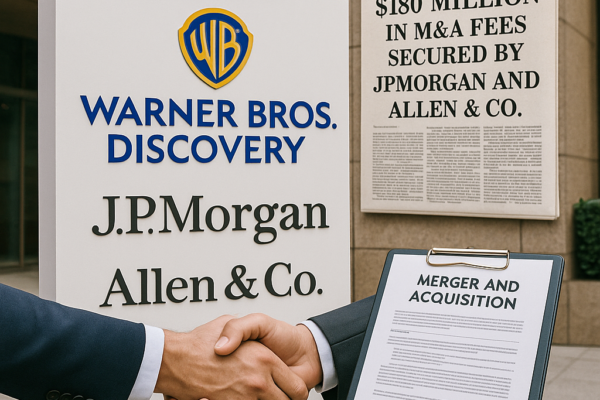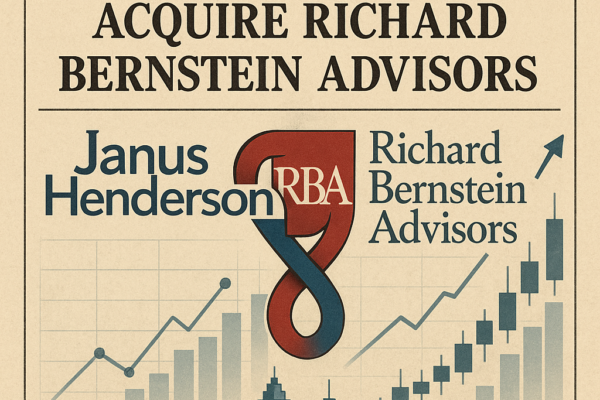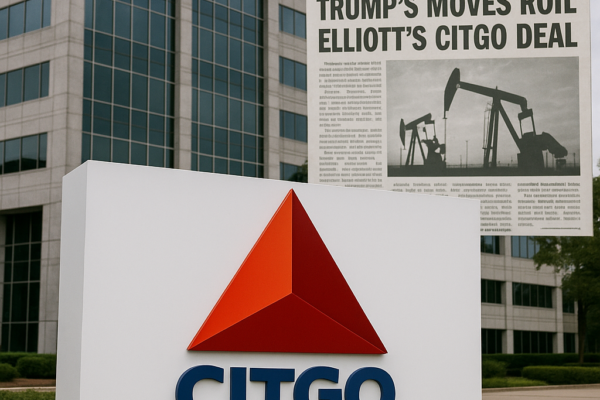In a move that reshapes the global asset management landscape, Nomura Holdings has announced its acquisition of Macquarie Group’s U.S. and European public asset management business for $1.8 billion in cash[1][4][6]. The transaction, expected to close by year-end 2025 pending regulatory approvals, transfers $180 billion in assets under management (AUM) and establishes Nomura as a top-tier global asset manager with $770 billion in combined AUM[3][5][8]. This deal marks Japan’s largest cross-border asset management acquisition since Mitsubishi UFJ’s purchase of Union Bank in 2008, signaling renewed ambition from Asian financial institutions in Western markets.
Strategic Rationale Behind the Transaction
Accelerating Nomura’s Global Ambitions
For Nomura, this acquisition represents a quantum leap in its decade-long effort to reduce reliance on volatile investment banking revenues. The Japanese firm’s investment management division will see its non-Japanese AUM share surge from 25% to 35%, achieving critical mass in the world’s largest wealth market[5][6]. By acquiring Macquarie’s Philadelphia-based operation with its 700-strong team[1][8], Nomura gains immediate access to established distribution channels serving U.S. retail investors (50% of acquired AUM) and institutional clients like insurance companies (35%)[1][3]. This complements Nomura’s existing strength in Asian institutional mandates and creates opportunities for cross-selling alternative investments through Macquarie’s retained private markets expertise[7][8].
Macquarie’s Strategic Pivot to Alternatives
Macquarie’s divestment continues its evolution into a pure-play alternatives manager, following its 2023 exit from European listed equities. The Australian group will retain just $58 billion in public assets domestically while focusing on infrastructure, real estate, and private credit strategies where it commands premium fees[2][7]. This realignment capitalizes on the 300 basis point fee premium alternatives typically command over traditional asset management[7]. The transaction also unlocks capital for Macquarie’s $15 billion infrastructure fund closing later this year while maintaining collaboration with Nomura through seed capital arrangements and sub-advisory partnerships[7][8].
Financial Architecture of the Deal
Valuation Metrics and Synergy Potential
At 1% of AUM, the purchase price appears conservative compared to recent transactions like Franklin Templeton’s 1.4% AUM valuation in its Legg Mason acquisition. However, the deal’s 2.6x price-to-revenue multiple (based on $700 million annual management fees[1][3]) aligns with market norms for scale platforms. Nomura expects the acquisition to be immediately accretive to ROE, contributing 15-20 basis points toward its 2030 target of 10%[3][6]. Cost synergies of $50-$75 million are anticipated through technology platform consolidation and back-office integration, though Nomura has committed to maintaining separate investment teams to preserve performance track records[3][8].
| Metric | Value | Source |
|---|---|---|
| Purchase Price | $1.8B | [1][4][6] |
| Acquired AUM | $180B | [1][3][5] |
| Revenue (Annualized) | $700M | [1][3] |
| Employee Count | 700+ | [1][6][8] |
| Post-Deal Nomura AUM | $770B | [4][5][8] |
Capital Structure Implications
The all-cash transaction will reduce Nomura’s CET1 ratio by 150 basis points to approximately 12.5%, still well above regulatory minimums[3][6]. To optimize its balance sheet, Nomura plans to securitize $500 million of acquired management fee receivables through a private placement later in 2025. Macquarie intends to redeploy 40% of proceeds into its private credit platform expansion, with the remainder funding share buybacks[2][7].
Leadership Continuity and Integration Challenges
Retaining Talent Through Transition
A critical component of the deal’s success lies in Nomura’s ability to retain Macquarie’s investment professionals, particularly fixed income teams managing $72 billion in AUM[1][3]. Nomura has structured retention bonuses totaling $120 million payable over three years, with 70% tied to performance targets[6][8]. Shawn Lytle, Macquarie’s Americas head, will lead the integrated U.S. asset management division, reporting directly to Nomura’s global CIO[3][6]. Cultural integration presents challenges as Nomura’s hierarchical structure meets Macquarie’s entrepreneurial culture – a issue Nomura aims to address through cross-cultural training programs and dual headquarters in Philadelphia and Tokyo[5][8].
Technology Integration Roadmap
The acquisition brings complexity in merging Macquarie’s cloud-based Orion platform with Nomura’s legacy systems. A three-year, $200 million technology integration plan will prioritize client-facing systems unification in Phase 1 (2025-2026), followed by middle-office consolidation (2027) and full platform integration by 2028[3][6]. During this period, both firms will maintain separate compliance systems to avoid regulatory disruptions[8].
Market Impact and Competitive Landscape
Reshaping the Global Manager Hierarchy
This deal propels Nomura from 15th to 8th in global asset manager rankings by AUM, surpassing Japanese rivals like Sumitomo Mitsui DS ($720B AUM)[5][8]. In the U.S., Nomura now ranks 12th among active managers, with particular strength in fixed income (top quartile AUM) and multi-asset strategies[4][6]. Competitors like UBS and JPMorgan face increased pressure in the insurance asset management segment where Nomura-Macquarie now commands 7% market share[1][8].
Private Markets Arms Race Intensifies
Macquarie’s accelerated pivot mirrors broader industry trends – BlackRock’s 2024 acquisition of Global Infrastructure Partners and State Street’s private credit push. The Nomura deal creates an intriguing public-private partnership model, with Nomura gaining preferential access to Macquarie’s $150 billion alternatives platform for product distribution[7][8]. This comes as preqin data shows institutional allocations to alternatives rising to 35% by 2025 from 25% in 2020[7].
Regulatory Hurdles and Antitrust Considerations
The transaction faces scrutiny from multiple regulators, particularly regarding concentration in U.S. fixed income markets where the combined entity would manage $210 billion[3][6]. Nomura has preemptively committed to divesting $15 billion in overlapping municipal bond mandates to satisfy antitrust concerns[8]. Cross-border capital flows also draw attention, with the BOJ requiring enhanced liquidity buffers for Nomura’s expanded U.S. operations[3]. Approval timelines range from 6 months (EU) to 9 months (U.S.), suggesting potential closure in Q1 2026[1][6].
Future Trajectory and Industry Implications
This acquisition signals three key industry shifts: 1) Asian financial institutions leveraging strong balance sheets for Western asset manager acquisitions, 2) Accelerating bifurcation between scaled public market platforms and specialized alternatives managers, and 3) Emergence of hybrid distribution models combining traditional and alternative capabilities. For CEOs, the deal underscores the criticality of geographic and asset class diversification in asset management strategies. Nomura’s success in integrating this acquisition may spark similar moves from Mitsubishi UFJ and Sumitomo, while Macquarie’s focused alternatives strategy could pressure Blackstone and Brookfield to defend their turf through technological investments in fund administration and liquidity solutions.
Sources
https://www.nomuraholdings.com/news/nr/holdings/20250422/20250422.html, https://www.macquarie.com/us/en/about/news/2025/macquarie-group-announces-agreement-to-divest-macquarie-asset-managements-public-investments-business-in-north-america-and-europe-and-enter-broader-strategic-relationship-with-nomura.html, https://www.nomuraholdings.com/investor/presentation/data/2025_0422_prem.pdf, https://www.planadviser.com/nomura-acquire-macquaries-us-european-asset-management-business/, https://www.crowdfundinsider.com/2025/04/238781-nomura-announces-acquisition-of-macquaries-us-and-european-public-asset-management-unit/, https://liquidityfinder.com/news/nomura-to-acquire-macquaries-us-and-european-asset-management-business-for-18-billion-77eb7, https://alternativecreditinvestor.com/2025/04/22/macquarie-group-sells-public-investments-business-to-nomura-in-pivot-to-private-markets/, https://www.wealthbriefing.com/html/article.php/nomura-agrees-to-buy-macquarie's-us,-european-asset-management-groups-





